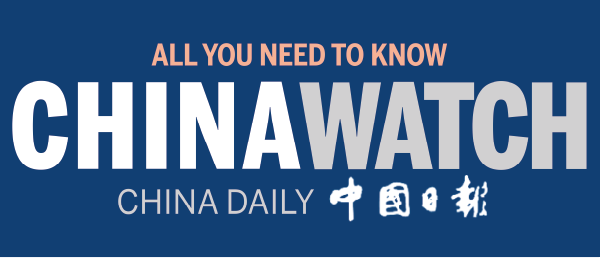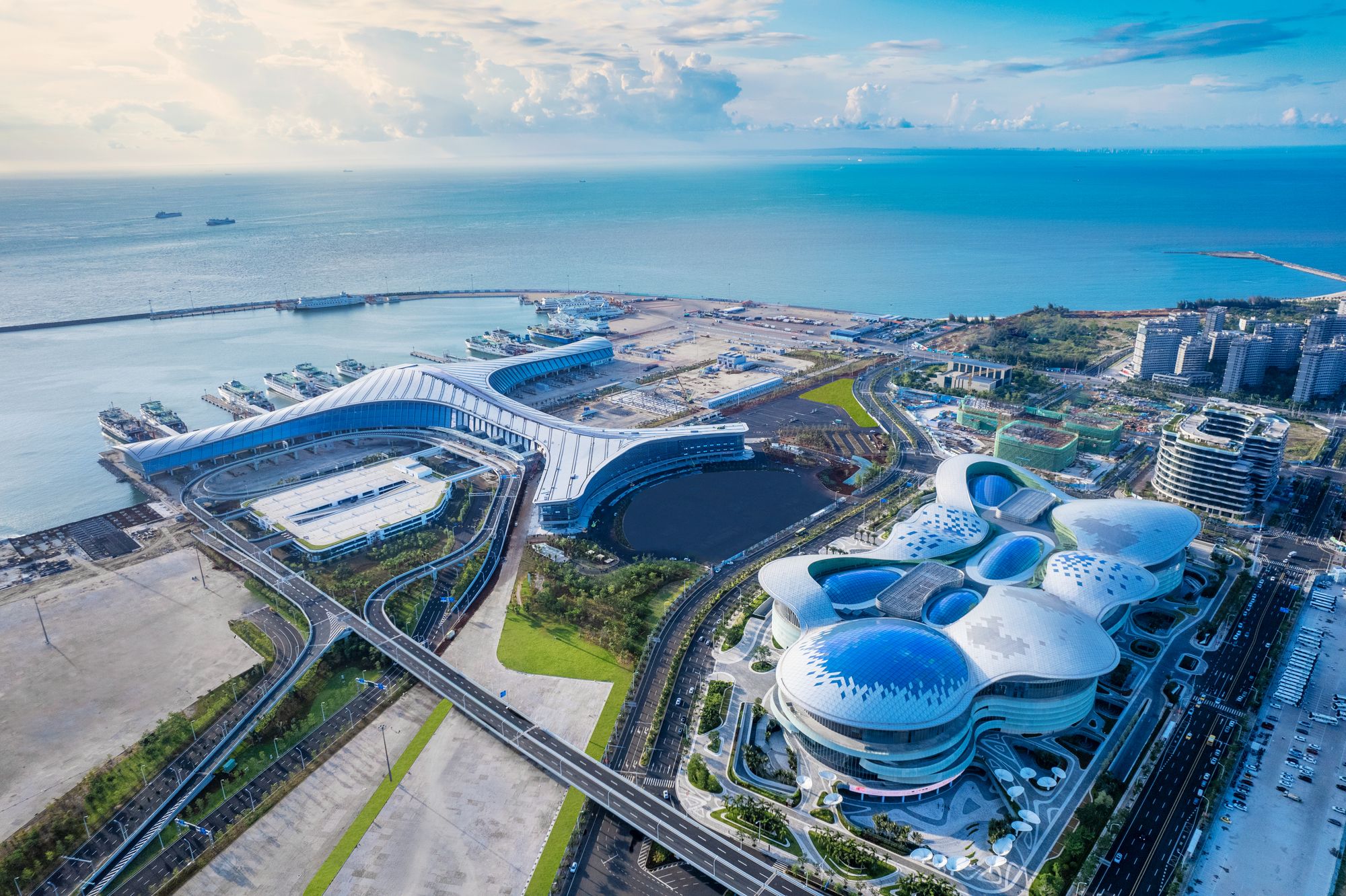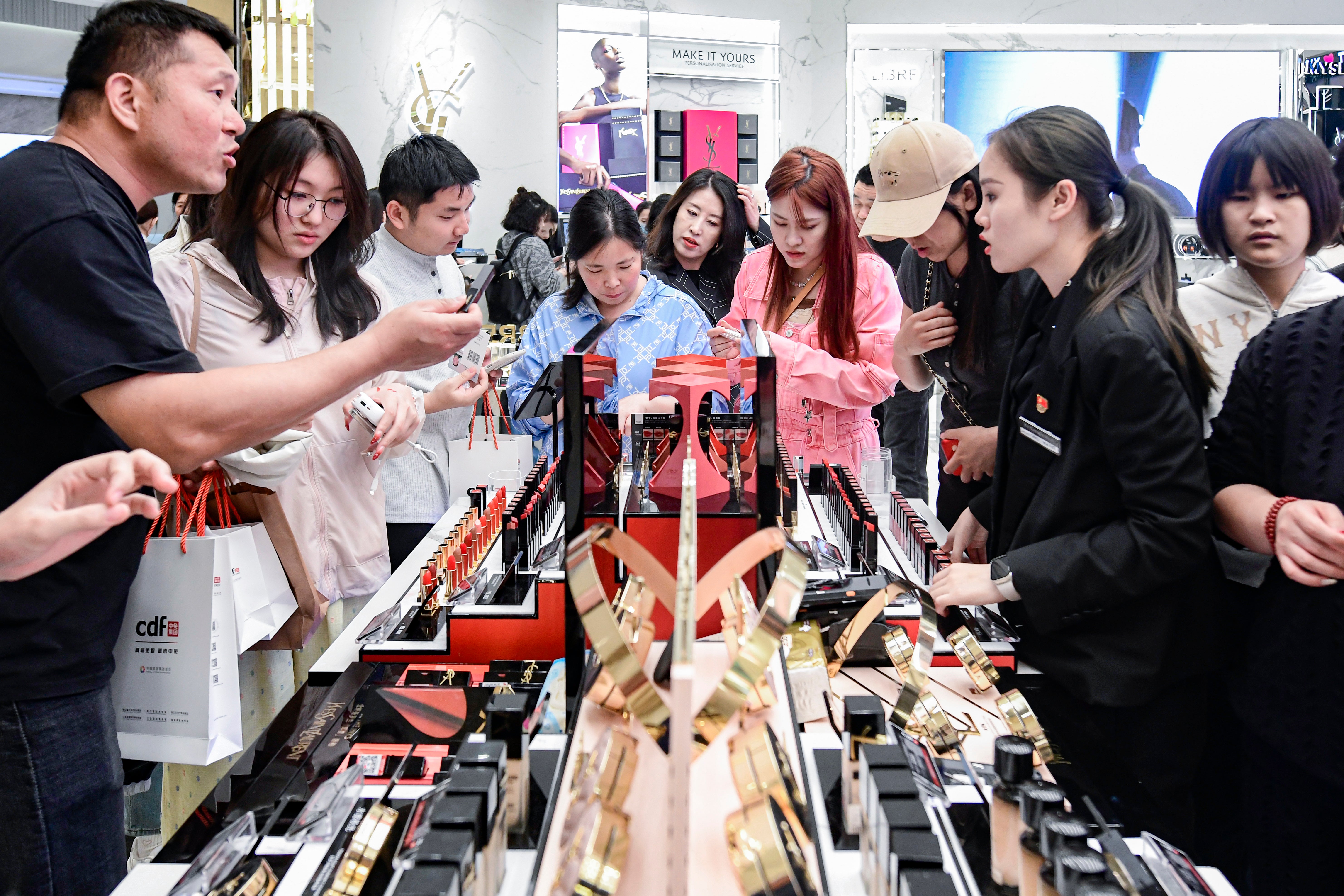- Asia
- China
- China Daily
THE ARTICLES ON THESE PAGES ARE PRODUCED BY CHINA DAILY, WHICH TAKES SOLE RESPONSIBILITY FOR THE CONTENTS
Advertisement feature Ma SiFriday 21 November 2025 13:27 GMT
Ma SiFriday 21 November 2025 13:27 GMT The Haikou International Duty-Free City in Haikou, Hainan province (PROVIDED TO CHINA DAILY)
The Haikou International Duty-Free City in Haikou, Hainan province (PROVIDED TO CHINA DAILY)Foreign and Chinese companies are scrambling to explore new opportunities in Hainan as the island province prepares to officially begin its special customs operations next month.
Hainan Free Trade Port will implement major favourable tariff policies from 18 December, with the proportion of products eligible for zero tariffs rising from 21 per cent to 74 per cent.
International organisations, company executives and experts have talked of the importance of the changes amid rising trade protectionism, saying it fosters free trade and reinforces economic globalisation.
Chinese business leaders, including Yu Minhong, chairman of New Oriental Education and Technology Group, in Beijing, Liu Yonghao, chairman of the animal husbandry company New Hope Group, in Chengdu, Sichuan province, and Li Shufu, chairman of the automaker Geely, in Hangzhou, Zhejiang province, recently led delegations to Hainan to explore potential opportunities and negotiate deals with local companies. They were joined by executives of technology companies such as Unitree Robotics of Hangzhou.
 Customers select goods at Haikou International Duty-Free City in Haikou in February (SU BIKUN / FOR CHINA DAILY)
Customers select goods at Haikou International Duty-Free City in Haikou in February (SU BIKUN / FOR CHINA DAILY)In recent weeks more than 40 key agreements have been sealed, covering sectors such as biopharmaceuticals, high-end manufacturing, the digital economy, tropical agriculture and aerospace technology. Each project signifies deeper industrial chain integration and upgrading, demonstrating the active participation of private companies in the Hainan Free Trade Port’s development.
Yu of New Oriental said he has visited Hainan four times this year and spent more than 25 days on the island. The company’s training centre for students who have studied abroad, in Lingshui Li autonomous county of Hainan, is expected to begin operations by the end of the year, he said. It will provide project services and entrepreneurial support for returning overseas students and startup founders.
Liu of New Hope said his company is deepening collaboration with companies in Hainan’s breeding and green food processing industries. Liu’s company is also jointly establishing the Haiken New Hope brand with Hainan State Farms Investment Holding Group.
Li of Geely said, “Launching a special customs operation is a signature project of the Hainan Free Trade Port and will provide a rare development opportunity for the growth of the private economy.”
Mohammed Al Zarooni, chairman of the World Free Zones Organisation, based in Dubai, United Arab Emirates, said: “Hainan province’s remarkable journey as China’s flagship free trade port offers a real-time case study in innovation, institutional reform and global connectivity.”
The organisation is one of the largest global networks of free trade zones, bringing together more than 1,600 members from 141 countries and regions. Hainan’s pioneering role as a high-level free trade port and a dynamic hub for trade, sustainability and innovation highlights China’s growing leadership in global trade reform, sustainability and digital transformation, Zarooni said.
Wang Changlin, deputy head of the National Development and Reform Commission, said the transition from preparation to full-scale special customs operations was a milestone in China’s pursuit of opening-up.
Starting on 18 December, all of Hainan will operate as a special customs supervision zone under a two-tiered system. The operations enable free trade between Hainan and areas outside China’s customs border, while maintaining standard customs controls for the Chinese mainland.
Eligible goods entering or leaving the island province — unless destined for the inland areas — will be subject to fewer customs checks and reduced tariffs or no tariffs at all.
The Hainan Free Trade Port will exempt about 6,600 product categories — 74 per cent of all taxable items — from import duties, value-added tax and consumption tax, compared with the current 1,900 categories. Goods imported by eligible entities from abroad, except those on a restricted list, will qualify for the exemptions, according to the policy approved by China’s finance, customs and tax authorities.
These goods can circulate freely among eligible entities on the island. If they undergo at least 30 per cent value-added processing in Hainan they will be exempt from tariffs when entering the inland.



